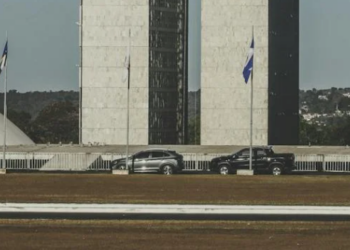by PublicABCP
Translated and reviewed by Matheus Lucas Hebling
The abolition of proportional coalitions in Brazil’s 2020 municipal elections, following the approval of Constitutional Amendment 97/2017, marked a turning point in the country’s political landscape. The study Os efeitos da proibição das coligações proporcionais no comportamento dos atores, authored by Bruno Marques Schaefer (IESP-UERJ), Silvana Krause (UFRGS), and Wagner Pralon Mancuso (USP), examines how this institutional change influenced party and candidate behavior, with a particular focus on its effects on party fragmentation in municipal councils.
The researchers investigated how party performance in the 2016 elections shaped their strategic decisions in 2020, shedding light on how electoral rules reform can reshape local political configurations. Drawing on data from both elections, the study analyzes the underlying factors that led parties to field candidates—or not—and the motivations behind candidates’ decisions to switch parties. Their analysis operates at three levels—municipal, partisan, and individual—using statistical methods to uncover how these dynamics influenced political behavior and the composition of local legislatures.
The findings reveal a clear pattern: parties that performed well in 2016 were more likely to nominate candidates in 2020, while poorly performing parties often withdrew from the race. This trend significantly contributed to a reduction in party fragmentation across city councils.
Additionally, candidates from smaller parties with weak 2016 performances frequently migrated to larger, more competitive parties to improve their electoral prospects. This shift further consolidated the party system, reducing the effective number of parties represented. In municipalities where these dynamics were most prominent, the decline in fragmentation was even more pronounced, reinforcing the dominance of established political forces.
The authors conclude that while the coalition ban had a direct effect on reducing fragmentation, this outcome was mediated by the strategic behavior of parties and candidates. Previous electoral performance and the political calculations made in a post-coalition environment were crucial in shaping the new partisan landscape in local legislatures.
This research deepens our understanding of how institutional reforms influence electoral dynamics and party organization. It suggests that banning proportional coalitions created incentives for the consolidation of stronger, more competitive parties, thereby reshaping the architecture of local political power.
About the Authors
Silvana Krause is a professor of Political Science at the Federal University of Rio Grande do Sul (UFRGS). She holds a degree in Social Sciences from the Pontifical Catholic University of Rio Grande do Sul (1986), a master’s degree in Political Science from UFRGS (1991), and a PhD in Political Science from Katholische Universität Eichstätt, Germany (2003).
Bruno Marques Schaefer is a Political Science professor at the Institute of Social and Political Studies at the State University of Rio de Janeiro (IESP-UERJ). He holds a PhD and a master’s degree in Political Science from the Federal University of Rio Grande do Sul (IFCH-UFRGS). He is a research associate at the Brazilian Legislative Observatory (OLB), the Laboratory of Electoral Studies, Political Communication, and Public Opinion (DOXA), and serves as the replication editor for Revista Dados.
Wagner Pralon Mancuso is a professor of Political Science at the University of São Paulo (USP). He holds degrees in Philosophy and Social Sciences, as well as a master’s and PhD in Political Science from USP. He is a faculty member in the graduate programs in Political Science (FFLCH) and International Relations (IRI) at USP.
Article Details
Title: Os efeitos da proibição das coligações proporcionais no comportamento dos atores
Authors: Bruno Marques Schaefer, Silvana Krause, and Wagner Pralon Mancuso
Publication Year: 2024
Where to Read: Revista de Sociologia e Política, Volume 32








